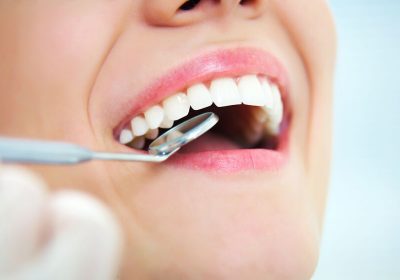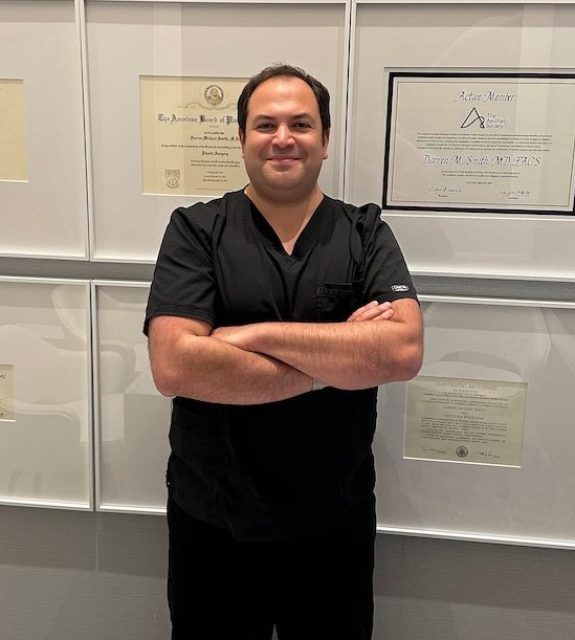Sharing our smile with the world can have its ups and downs if you're not 100% happy with your pearly whites. Fortunately, through innovative procedures, fixing our smiles can be a much easier process than we think. Haute Beauty caught up with board-certified dentist Dr. Husam Almunajed to discuss why bonding is the best treatment for a quick smile makeover.
Haute Beauty: What is bonding?
Dr. Husam Almunajed: Bonding is the application of a composite resin material to the existing tooth. Bonding is used for filling cavities, masking discolored teeth, whitening, repairing fractures, and making cosmetic improvements to the natural tooth usually in one appointment. The resin is applied to the natural tooth to achieve the desired aesthetic and functional effect. Very little natural tooth reduction is necessary, if at all, and usually, no anesthesia is needed making this procedure a conservative, effective and artistic dental restoration.
HB: What should patients know about this procedure?
HA: Bonded teeth last 5-8 years or longer, and require professional finishing once every few years. Tips for maintaining your bonded teeth include using a night-guard, refrain from smoking and having your teeth cleaned minimally twice a year. In addition, just as with your natural teeth, avoiding biting your fingernails, chewing ice, and minimizing your consumption of stain-causing foods and drinks.
HB: Which patients qualify for this procedure?
HA: Dentistry today has taken a much more conservative approach. Regular dental visits are crucial to early detection and a proactive method can be taken rather than a reactive method. Small cavities can be re-calcified, removing the need for bonding. Composite bonding is a useful and minimally invasive solution that can be replaced over time, when necessary. Especially for young patients, it is important to preserve the teeth as much as possible for the rest of the patient's life, composite bonding is a much more conservative procedure than a crown and veneer. Candidates for tooth bonding are patients who may have white or brown spots, fractures or staining due to excessive wear or silver fillings, are not heavy smokers or coffee drinkers, and those who want a less invasive, cost-effective option. When planned well, composite resin bonding can be a beautiful treatment choice.
For more information, visit Dr. Husam Almunajed's social media:

























